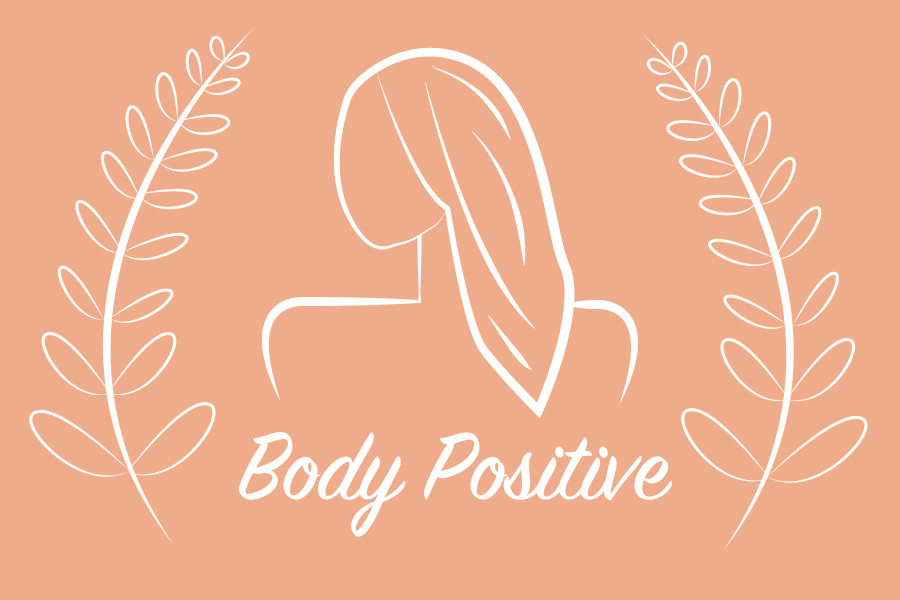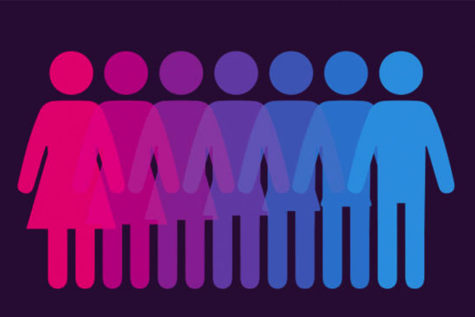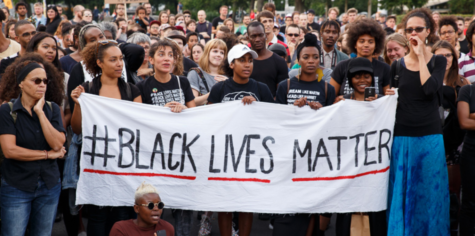Body positivity: a movement that needs to be heard
Body positivity is a social movement that was initially created to challenge societal norms.
Body positivity is a movement, started in 2012, to normalize bodies at whatever shape and size and has been picked up worldwide by both everyday people and celebrities.

While the body positivity movement is somewhat recent, its roots are all the way back to the late 1960s. The focus was on fat acceptance and stopping discrimination based on body sizes. In 1969, The National Association to Advance Fat Acceptance was created and started the conversation about body positivity. The actual term “body positive” was brought to life by psychotherapist, Elizabeth Scott, and her co-founder, Connie Sobczak, who had been through an eating disorder and the death of her sister, when they created a website called thebodypositive.org. Before the website, the term was actually used by several AIDS organizations
to support people who were HIV positive. The website is full of ways to live a healthy and sustainable life while spreading love no matter what size or race. The movement we know and love today focuses on challenging societal views on the ideal shape and appearance, promoting acceptance towards all. For more information about the background of body positivity and what it is, visit Verywell Mind.
Body positivity has increasingly become more prevalent and is a topic that is important to share. Our society has set unrealistic standards for beauty, making the everyday person insecure and hate their bodies. We spend our lives wishing to change what we have, instead of embracing and cherishing our own uniqueness. Hating ourselves is only hurting us and can lead to low self-esteem, depression, and/or eating disorders. According to Break Binge Eating, around 50% of young 13-year-old American girls reported being unhappy with their bodies. By 17, this number grew to nearly 80%.
How can we stop the trend of body shaming, and learn to love ourselves? This process does not happen overnight, and I believe that it is something that comes with time. Information provided by Oliver-Pyatt Center gives tips on how we can love our bodies. First off we need to rewire our brains and our way of thinking. Instead of comparing ourselves to others, or shaming someone based on our own insecurities, we should stop ourselves from the spiral. We need to inspire ourselves and surround our social media feeds with people of all different shapes, sizes, and colors. Seeing the same size zero models only hurt our body image more and make our minds believe that there is only one way to be beautiful. We need to nourish ourselves mentally and physically. Skipping out on food is only going to create bad habits, as well as an unhappy and unhealthy lifestyle. Another way is to practice body neutrality. You may not love your body, but learn to love and accept it for what it is in the moment. Remember that you are more than just a body.
There are many great resources out there that cover the topic of body positivity. A podcast called Unlocking Us, made by #1 New York Times best-selling author Brene Brown, uses ideas, stories, books, films, and music to show the similarities that humans all around the world experience. Her spread of positivity does not stop at her podcast, as she has written many successful books that dive deep into human emotions.
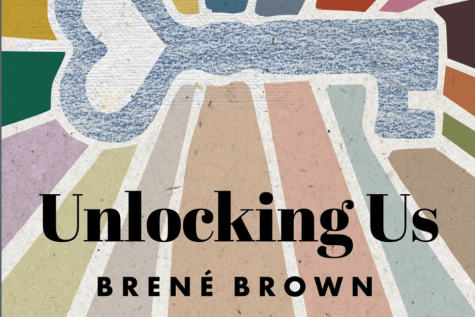
The Body is Not An Apology is another powerful book written by world-renowned activist and poet, Sonya Renee Taylor. The book offers radical self-love to heal ourselves and show how important it is to love every part of our bodies.
Health at Every Size, by author and doctor Linda Bacon, was written to go against societal stigmas. The book shows how fat is not the problem, it is the crazy diets people go on thinking it will help them lose weight.
Our society believes in order to be a healthy person you need to be a certain size and shape, when in reality that is not true.
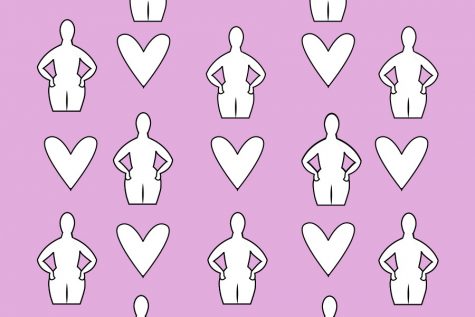
While the world is still far from erasing the stigmas and fat-shaming, we have still made progress with body positivity. As the movement expands, more people have joined, including big celebrities and brands. Dove released a campaign in 2004 called Real Beauty. It focuses on building self-confidence in women and young children. Throughout the campaign they have used models of all races and sizes, showing that beauty is for everyone.
Big clothing companies, like Nike, have also started to add plus-size clothing. The modeling industry, that was once only size zero models, is changing its ways by implementing plus-size models. One of the most monumental moments in the modeling industry was in 2017 when Vogue magazine featured its first plus-size models on the cover. Since then they have continued to preach body positivity, featuring models of all sizes and writing articles about the topic.
Some of the most influential celebrities that have supported the movement include Serena Williams, Hilary Duff, Demi Lovato, Anne Hathaway, and Lizzo.
The body positivity movement is growing and changing every day. Hopefully in the future, the stigmas and shaming of bodies will not exist. Life is too short to hate the body you were blessed with.

Mary Eichler ('21) is interested in writing about pop culture and currents trends. This is Mary's first year as a staff member of the LeSabre. Painting,...



